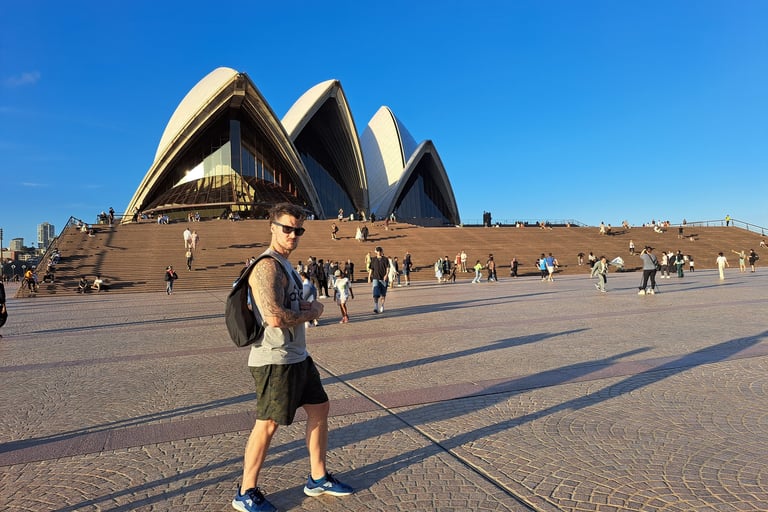There’s something I’ve been trying to come to terms with lately. At this point in my life, I’ve had to work harder to find what I’ve started calling the BOOPs—Bridging Opportunities of Open Perspective. Yes, I’m coining it.
Because here’s the truth: lessons are everywhere, but they don’t announce themselves. They wait. They hide in the ordinary and the difficult alike, and to uncover them you have to live. You have to move through the world, engage with it, stumble, recover, and sometimes suffer.
That’s why travel has always felt like an anchor for me. There is nothing quite like stepping into a place you’ve never been, where all familiarity is stripped away and your brain can’t slip into autopilot. You’re forced into presence. The monotony breaks. Every step is reminder: you are here. Even when it’s exhausting, it makes me feel alive.
But recently, I’ve noticed something I never thought about when I was younger. As much as I love traveling, it carries its own set of challenges—subtle at first, until they loom large.
When you travel, especially far, your routine vanishes. Everything steady, everything predictable, disappears. That’s part of the appeal, of course. It’s what makes travel exhilarating. But it also means hiccups become mountains.
An SSRI dose taken too late or too early—and suddenly my brain chemistry has already decided the day will be an uphill climb. A missed flight, a lost reservation, or the last of my cash spent on some street snack that felt right in the moment. Finding myself lost in a place where I can’t speak the language. And here’s what I’ve realized: my mental health work right now isn’t about avoiding these moments, or forcing control where there is none. It’s about letting them unfold. Watching without spiraling. Keeping a safe mental distance instead of being swallowed whole.
I struggle with depression. I don’t know when it began; if it was always there, quietly lurking, or if it crept in during my early thirties. But I recognize it now, and I'm starting to learn its signals. I can feel when it starts pressing in. And I’ve learned, at least in part, how to coexist with it.
That doesn’t mean it’s easy. Some days feel like derailment. Like progress has been erased and I’ve been dropped back at square one. But then, usually, there’s a BOOP. A small shift. A chance—if I’m paying attention—to turn whatever is happening into something useful. A new perspective. A sharper skill. And despite everything, I know I’m fortunate. First, because of my family. And then, because of what I’ve managed to piece together about my existence so far.
But even with that knowledge, it can still feel impossible to summon gratitude. That’s how depression works. It bends perception and shrinks the world; darkens it and weighs it down until you forget it was ever light. And in those moments, you have to fight not to believe what it tells you. The truth is that sometimes, living hurts. It’s unfair, and when everything feels like it’s collapsing, it's easy for it to feel permanent.
But it isn’t. Even if the darkness lasts for a moment, it rarely lasts for the next. So don’t let that voice convince you to shrink yourself to nothing. You are here. You are alive. Sometimes you hold the reins, and often, you don’t. Shoulder the hard times, and learn to lean into your people. You have to accept the bleak periods, but hold on until they pass because they do pass.
That’s what living with depression is, for me. It’s not simple, and I don't always understand why I'm experiencing it. But when I make myself search for the BOOPs, I often find honest lessons. So maybe I need the weight of the bad days to give the good ones something to stand above.


